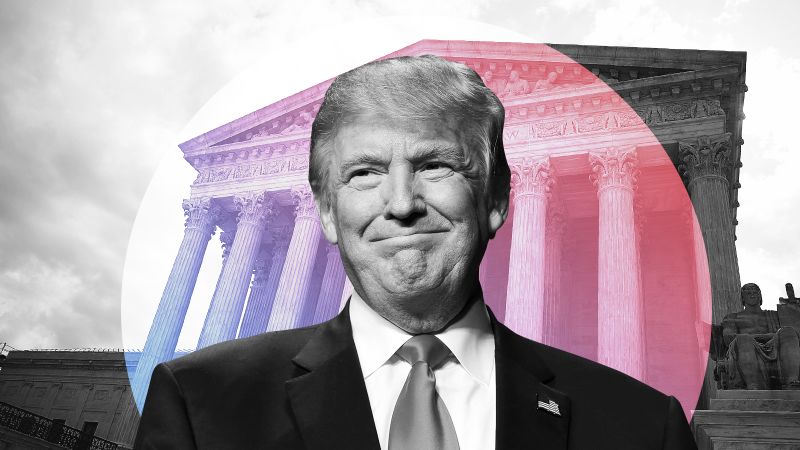The Supreme Court’s decision to hear Donald Trump’s claim that he should be shielded from criminal prosecution keeps the justices at the center of election-year controversy for several more months and means any verdict on Trump’s alleged subversion of the 2020 vote will not come before summer.
The country’s highest court wants the final word on the former president’s assertion of immunity, even if it may ultimately affirm a comprehensive ruling of the lower federal court that rejected Trump’s sweeping claim.
For Trump, Wednesday’s order amounts to another win from the justice system he routinely attacks. The justices’ intervention in the case, Trump v. United States, also marks another milestone in the fraught relationship between the court and the former president.
Cases related to his policies and his personal dealings consistently roiled the justices behind the scenes. At the same time, Trump, who appointed three of the nine justices, significantly influenced the court’s lurch to the right, most notably its 2022 reversal of nearly a half century of abortion rights and reproductive freedom.



That’s quite interesting. Didn’t know that wasn’t the normal and now I have something to look into. It seems like the political leanings is the only thing that’s ever talked about so will be interesting to see how they do it else where.
This is most Americans whenever this sort of thing comes up. Most Americans are very unaware of anything that happens beyond US borders, and assume that the way things happen in the US is normal worldwide. Meanwhile, most of the rest of the world is exposed to news and other media from the US as well as many other countries.
If you live in Australia you get British media, Aussie media and US media. If you live in the UK you get UK media, American media and European media.
Even in non-English countries, Hollywood media is everywhere, even if it’s translated to other languages. Hollywood offers a distorted view of the US, but it’s still media made with US ideas and biases, so it exposes the rest of the world to how the US thinks. The closest most Americans get to foreign media is an occasional break-out hit like Squid Game.
It’s frustrating how isolated the US is, because decisions made in the US affect the whole world. But, when the people making those decisions don’t know much of anything about the world outside the US, they often don’t know that there’s a better (or at least different) way.
Jesus Fucking Christ dude, I was talking about judges and you took this opportunity to rant for multiple paragraphs about media. It’s the fucking internet, I can get news from multiple sources and not just “squid games”. Commenter above talked about German judges political leanings, as I’m sure plenty of other countries do as well after researching further on it. UK and Australia are the outliers (with Canada, still looking into them) and have their own sets of problems, instead of talking about those you’ve decided to make an anti-US shitpost.
Looking into it further, seems like they all have their failings and political stances are included in all of them. Your high horse just has a nice robe thrown around it’s wooden legs so no one can see what’s going on. If you want to continue talking about “judges” I’m all for it, coming to see your wall of text about US media is just fucking sad. “now I have something to look into, will be interesting to see how they do it else where”.